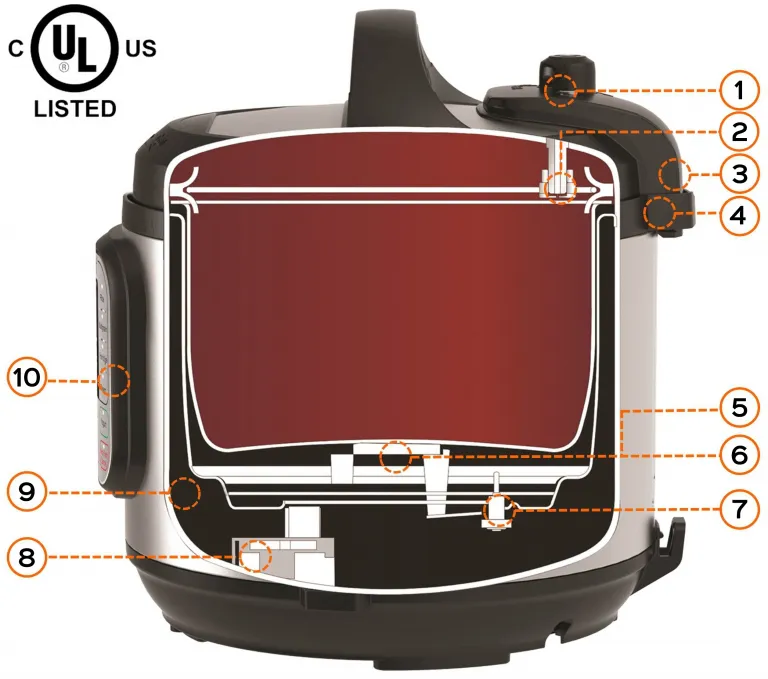Instant Pot® has been carefully designed to eliminate many common errors from causing harm or spoiling food. It has passed the stringent UL & ULC certification giving you uncompromised safety and peace of mind. Instant Pot protects you with 10 proven safety mechanisms and patented technologies.

- Steam Release – Releases excess pressure by venting steam through the steam release valve/handle.
- Anti-Block Shield – A stainless steel cover which prevents food particles from entering the steam release pipe, reducing the risk of blockages.
- Safety Lid Lock – When cooker is pressurized, the lid will automatically lock to prevent opening the cooker. Do not attempt to force the lid open while the cooker is pressurized.
- Lid Position Detection – If the lid is not in a safe position for pressure cooking, the cooker will not allow cooking to begin.
- Automatic Temperature Control – Regulates heating to ensure the inner pot remains within a safe temperature range, based on the program.
- Overheat (Burn) Protection – Overheating may occur if:
- After Sautéing, inner pot has not been deglazed— food is stuck to the bottom
- The pressure cooker is being operated without sufficient cooking liquid
- The inner pot is not making full contact with the heating element
- The inner pot encounters a heat distribution issue, such as when starch accumulates on the bottom of the inner pot.
- Automatic Pressure Control – Maintains working pressure levels. Suspends heating if pressure exceeds pressure level limits.
- Electrical Fuse – Cuts off power if the electrical current exceeds safety limits.
- Thermal Fuse – Cuts off power if the internal temperature exceeds safety limits.
- Leaky Lid Detection – If there is steam leakage from the lid (such as, sealing ring not installed, or steam release handle being in “Venting” and not “Sealing” position) the cooker will not pressurize. Loss of steam may cause food to burn. The cooker monitors the pre-heating time and lowers heat output if working pressure is not reached within 40 minutes.
